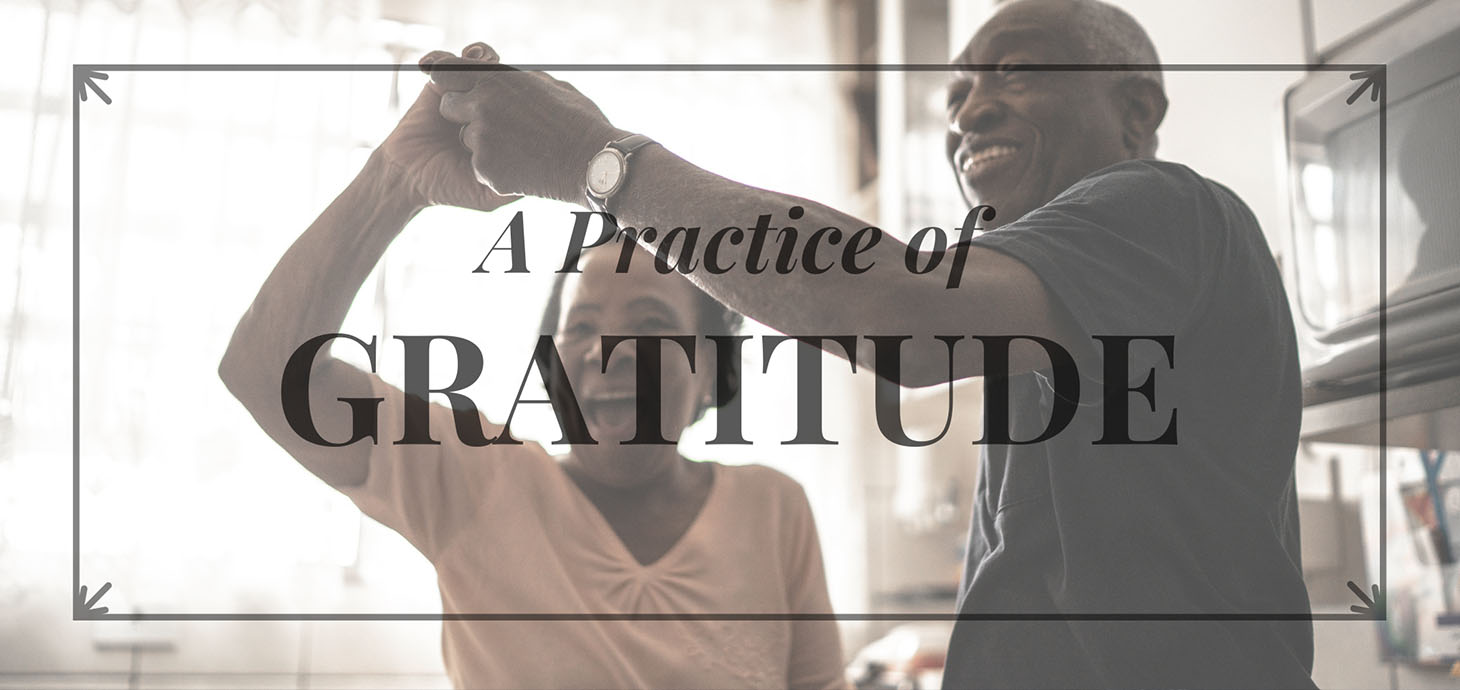Reflections

In a year that has been much harder than any of us might have anticipated, we find ourselves coming to what should be a season of rest and reflection, but with hearts bruised and emotions exhausted. We have watched people become divided over everything from toilet paper to the election. We have seen businesses that embody long-held dreams struggle to survive this brave new world where the parameters are constantly shifting. But no clouds are without their silver linings, no darkness without stars to light the way. Gandhi said, “In the midst of darkness, light persists.” And so in this year of 2020 that no one could have anticipated, we now step back and choose to renew a practice of gratitude. Because it’s not just our personal lives that benefit from the lens of gratitude; it’s our work lives, and our communities as well.
Richard Emmons is the world’s leading scientific expert on gratitude. He and his team have conducted scientific research over decades that consistently proves that “when people regularly work on cultivating gratitude, they experience a variety of measurable benefits: psychological, physical, and social.”1 In fact, studies show that the character trait of gratitude is the “single best predictor of well-being.”
From the standpoint of work, Harvard Business Review reports that “research suggests that gratitude is also key in helping individuals and teams persevere in challenging tasks.” 2 Anyone else need a little help persevering in 2020?!
But as much as we hear about gratitude this time of year, what does that actually look like in real life? To dive a bit deeper, the word “gratitude” itself comes from an old Latin word “gratus,” meaning “pleasing,” or “thankful.” Our English word for “grace” is derived from the same root word, and creates an interesting twist as “grace” is often defined as an “unmerited gift or favor.”
And perhaps that is part of the reason why a practice of gratitude can be so effective? As Americans, we are hustlers, competitors, winners (and proud of it!). But is it possible that in our race to reach the finish line first, we have found it easy to forget all that we do have?
In an authentic practice of gratitude, “we recognize the sources of [the good in our lives] as being outside of ourselves,” says Emmons. “It didn’t stem from anything we necessarily did ourselves in which we might take pride. We can appreciate positive traits in ourselves, but I think true gratitude involves a humble dependence on others.”
In its simplest form, gratitude is thankfulness for what we have been given. While there are many ways of implementing a practice of gratitude, here are a few that we have found helpful.
- Articulate out loud or in writing what you are grateful for. The spoken & written word is uniquely powerful. Many researchers suggest book-ending your days by writing down specific things you are thankful for. A side benefit to this is that we become more fully present in what is happening today instead of jumping ahead to tomorrow. Psychologists suggest identifying 3 good things from every situation.
- Teach your children or other family members to actively identify what they are grateful for. When family meal time becomes a time and place to choose gratitude, we are not only building up good habits but also hopefully avoiding mealtime quarreling!
- Use technology where it’s helpful. Headspace is a wonderful app that teaches meditation, which is closely linked to gratitude. It also pops up occasional reminders on your home screen about how to live a more present life. My Gratitude Journal is another app that allows you to set reminders, and gives you prompts each day for different areas to focus on being grateful.
- Use visual reminders. Something as simple as a post-it note or as fancy as a gratitude jar (you can find an inexpensive version from Etsy here) will help create an instill a practice of gratitude.
Whatever practice works for you and your family, a regular rhythm will help create a journey of gratitude that lasts beyond this holiday season. In these unique days of uncertainty and upheaval, gratitude is once again proving to anchor our roots in what is most meaningful. May this season of Thanksgiving be one of rest, reflection and gratitude for you and your family.



.png?sfvrsn=4583b53d_0)
